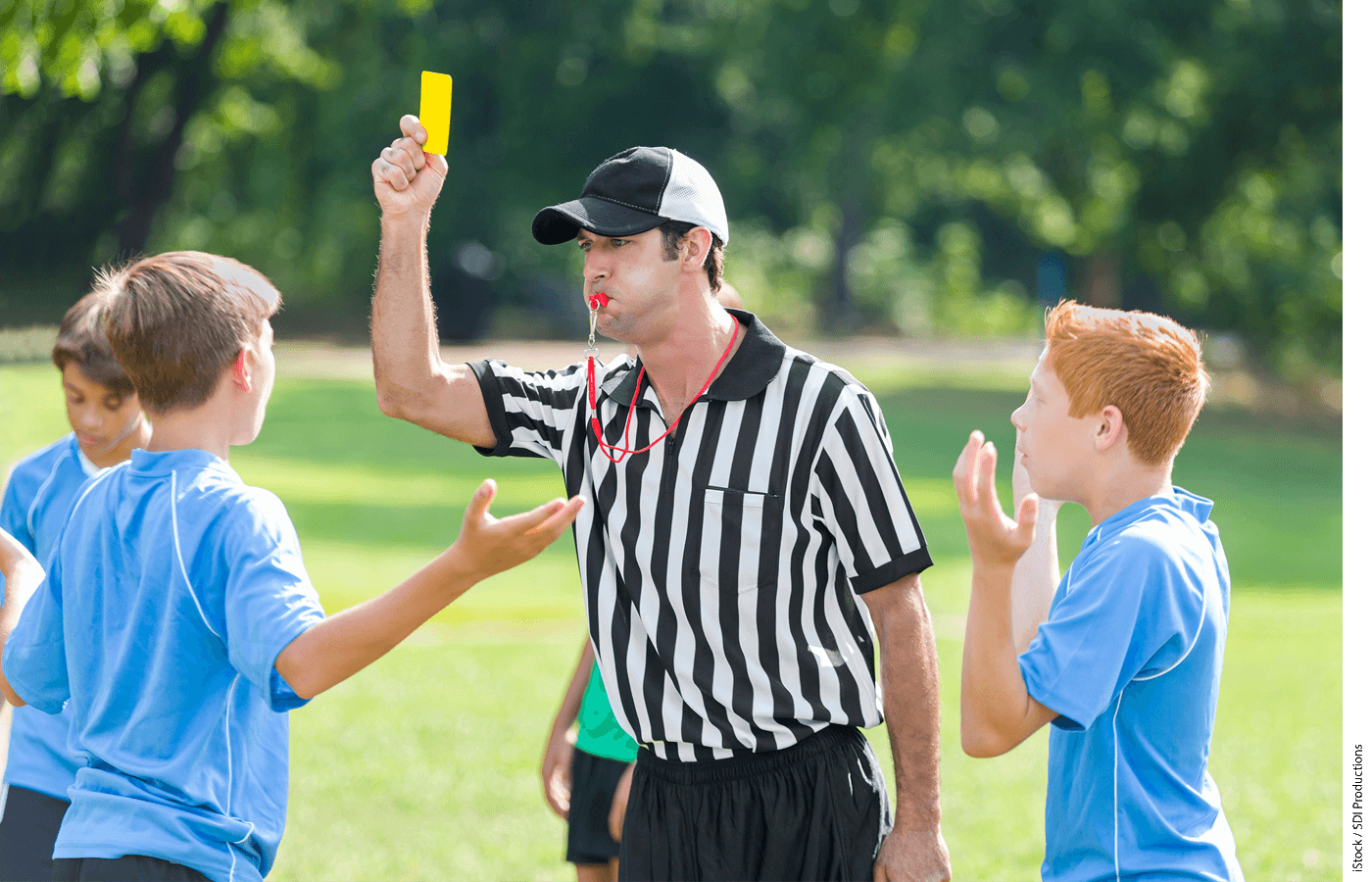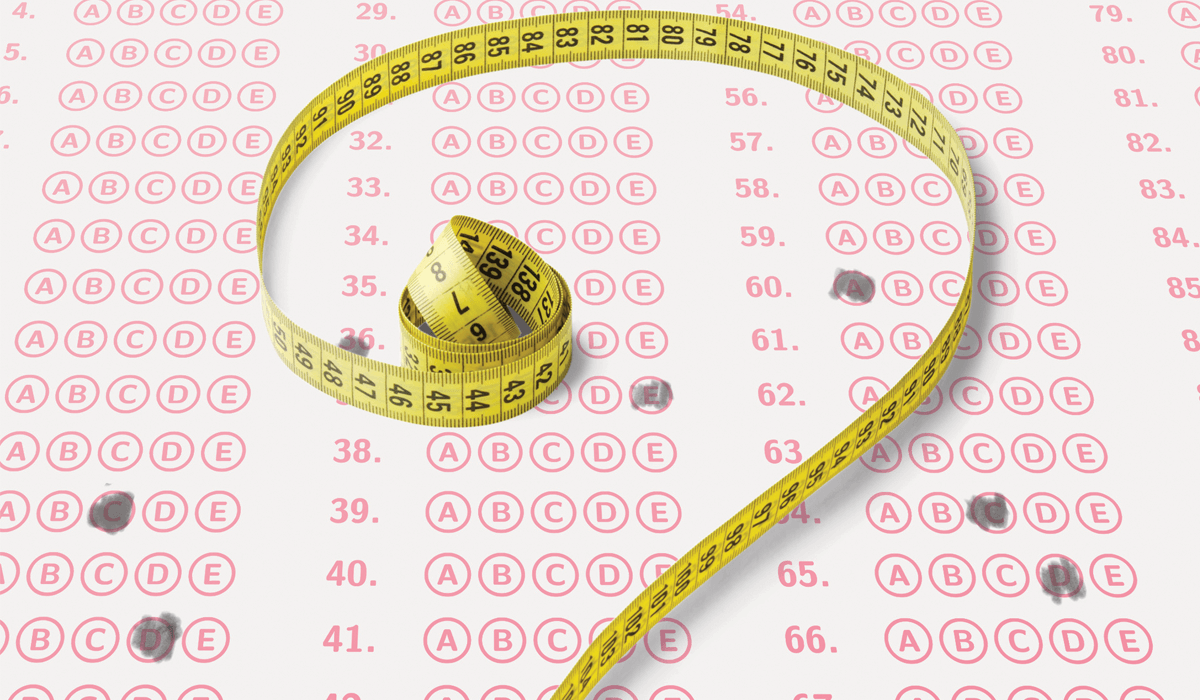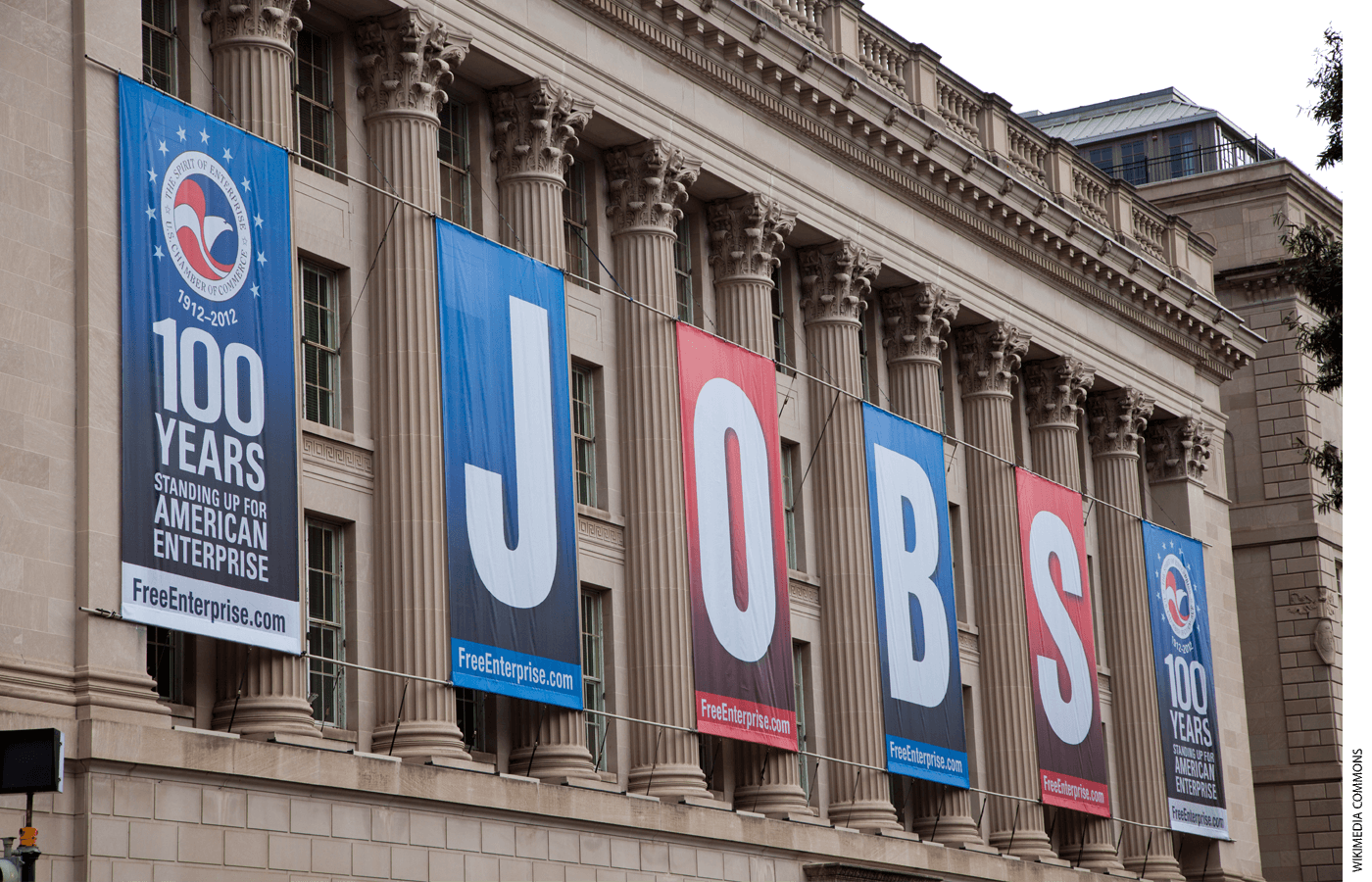
We’re in the midst of spring soccer. This means weekends spent shuffling from one field to the next, folding and unfolding those ubiquitous canvas camping chairs. It’s heartwarming: the neighborly chatter, sunny days, and good cheer. (I’m tempted here to rant about the wonders of youth sports or the pathologies of anti-child nihilists. But I want to focus on something less zeitgeist’y.)
Like I was saying, the games are heartwarming. You know what’s not so much? Refereeing those games. And this has some lessons for those in and around education.
Back in my much-younger days, as a teen, I used to referee on Saturdays and Sundays for pizza money. Well, I hadn’t been out on the field in decades. Then this year, for whatever reason, the referee didn’t show up one Saturday for our nine-year-old’s rec league game. So, I got pulled out of my extended retirement. In flip-flops and fleece. With no whistle. Not an auspicious set-up.
And you know what? I’d forgotten how bloody hard it is, even with preteen players, genial coaches, and low-key parents. Although I see referees at work every weekend, it’s easy to overlook how much harder it is to regulate the action than to watch it.
Fourth graders fall down a fair bit. They throw elbows. They’ll cluster, which makes it hard to see who touched the ball last. They’re energetic and lack finesse, yielding sharp reversals in the flow of play and leaving a referee chuffing to catch up. And even at a low-stakes game with a forgiving audience, like the one I handled, it’s hard to wholly tune out the occasional complaint from parents or coaches who think you missed a call.
When I’m comfortably perched on the sideline, I rarely notice any of this. In fact, I hardly think of the referee at all. But the referee is out there dealing with all of this, noticed or not. When a referee does well, it mostly goes unnoticed. When they fare poorly, it can have big repercussions for the behavior, safety, and mindset of the kids.
Refereeing well is a lot tougher than it may appear. After all, it’s not always easy to tell when a push should be whistled rather than waved off. It depends on how often the kid is pushing. The intent. The size of the pushee. How clearly the referee could see the play. Even the general tenor of the game. Multiply this by lots of incidents, involving lots of kids, for an hour. Calling this push inevitably raises questions about why the ref didn’t call that one. It’s tempting to just let the kids play. But if a referee does so, the kids soon sense it. The restraint that helps keep things in check can start to unravel.
If that passage makes you think of what’s happening with school discipline, chronic absenteeism, or grade inflation, you’re probably onto something. We’ve become less and less willing to appreciate the referees charged with enforcing expectations around behavior, attendance, or academics, or to extend them much in the way of grace or deference. And they’ve responded in predictable ways.
After all, it’s easy for activists, attorneys, and academics to pick apart decisions made in the heat of the moment. Indeed, they’ve done this so vociferously that educators are hesitant to enforce norms—fueling disorder and a sense that behavioral rules are exceptionally elastic.
When it comes to student misbehavior, one-third of teachers report that they don’t feel safe at work and 29 percent that their largest source of job-related stress is “managing student behavior.” Meanwhile, almost half of teachers say they put up with misbehavior due to a lack of administrative support. Administrators have become hesitant to support firm behavioral norms, seeding chaotic classrooms.
There’s been much attention paid to the astonishing increase in chronic absenteeism. This winter, USC researchers asked parents why their children are missing so much school. The most common reason was their kids “oversleeping or not being able to get out of bed in the morning.” In response, there’s been a reticence to firmly and frankly tell parents that their kids need to be in school—and remind them that getting kids out of bed in the morning has been a challenge since time immemorial.
Grade inflation has eroded expectations, with the ACT reporting that more than 89% of high schoolers receive an A or a B in English and math—even as tested performance has declined. What’s going on? For one thing, educators reported last fall that “students often ask for better grades than they’ve earned,” with 82 percent saying they’ve “given into demands” to change grades—38 percent having been harassed over grades by students and 33 percent by parents. Tough grading even gets critiqued as “inequitable.” The routines that support firm expectations have atrophied, with predictable results.
Subscribe to Old School with Rick Hess
Get the latest from Rick, delivered straight to your inbox.
Refereeing can be thankless work. Enforcing standards is tough at any time, doubly so when you’re tired and in the thick of things. Educators know all of this, which is why they’re much more likely to play that role if they’re urged to do so and supported when they do. Today, though, too many educators don’t feel encouraged in that work—whether by school leaders, parents, or social norms. And that has had troubling consequences.
Healthy institutions need members who enforce norms in reasonable and consistent ways. The challenge is that the path of least resistance is to go with the flow and let someone else do the hard work. As my AEI colleague Yuval Levin has observed, ensuring rigor or enforcing rules isn’t as fun as performing or proclaiming. And today I fear that refereeing—as much on the soccer pitch as in the classroom—is less appealing and less appreciated than ever.
Frederick Hess is an executive editor of Education Next and the author of the blog “Old School with Rick Hess.”






